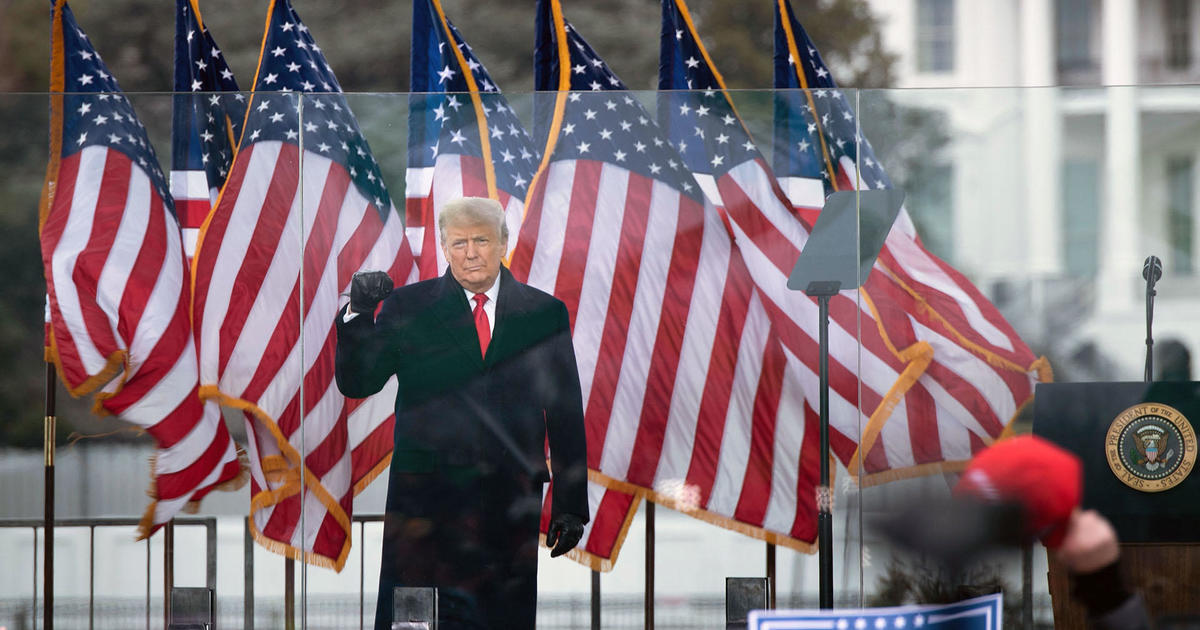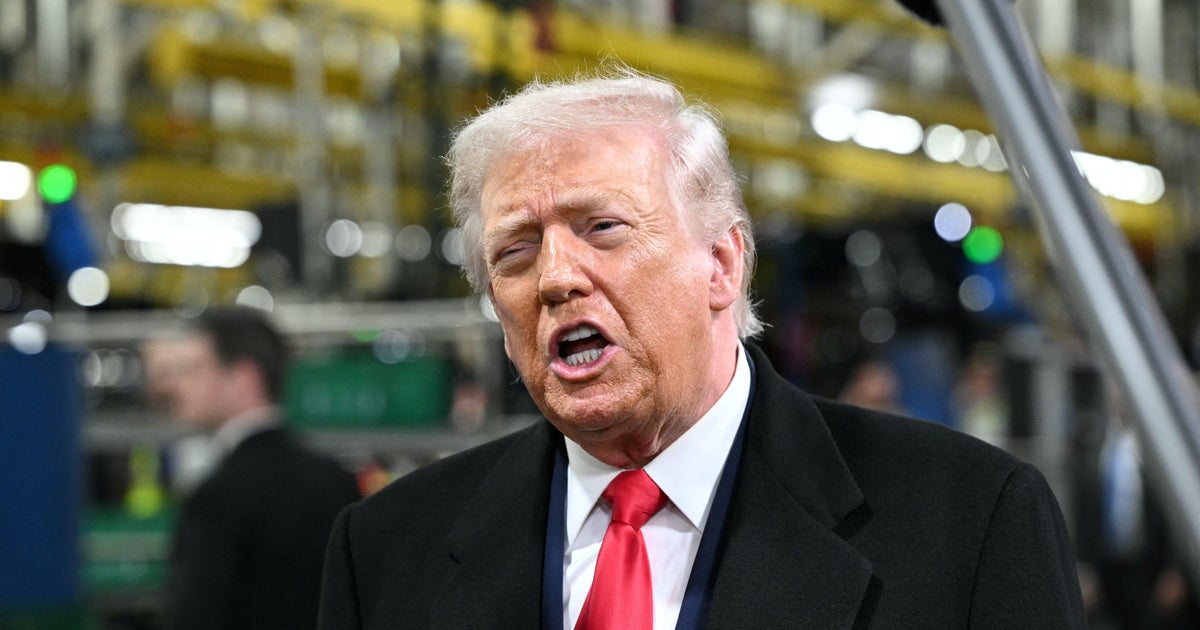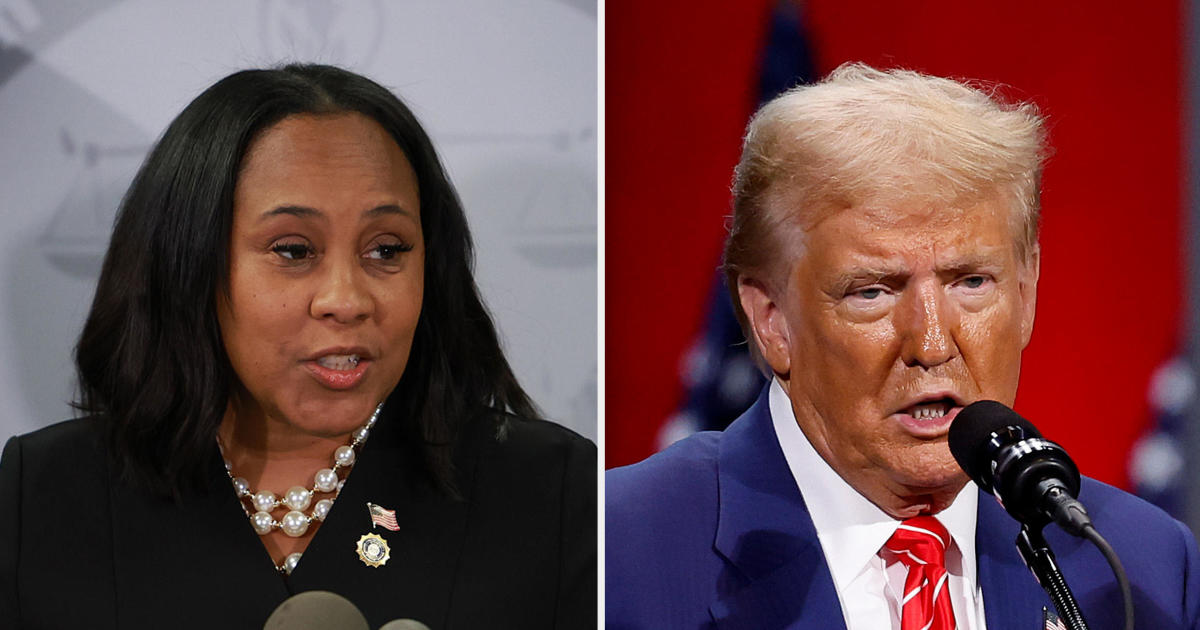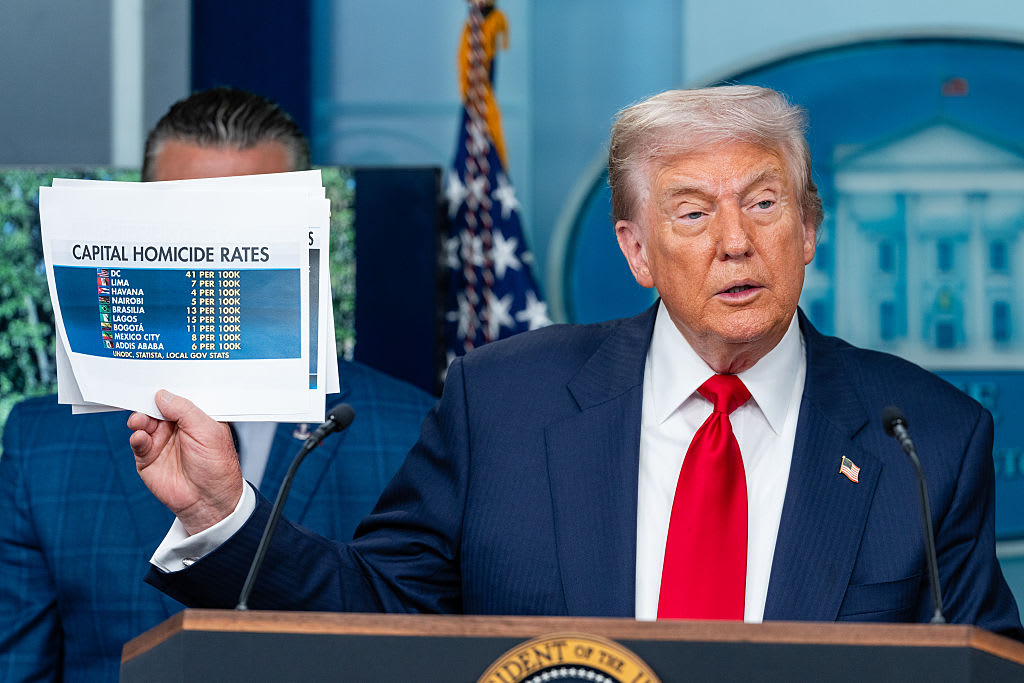Trump asks federal court to take over Manhattan criminal case
Attorneys for former President Donald Trump asked a federal court to take over the Manhattan district attorney's criminal case against him, saying the matter involves "important federal questions" that require the court's intervention.
In a 9-page filing in the U.S. District Court for the Southern District of New York on Thursday, Trump's legal team said the "unprecedented" case is better suited for federal court.
"[T]he case involves important federal questions since the indictment charges President Trump for conduct committed while he was President of the United States that was within the 'color of his office,' and the charges involve alleged federal and state election
law violations that have a federal preemption defense," the filing said.
One of Trump's attorney, Todd Blanche, told New York Judge Juan Merchan in a hearing earlier in the day that the defense would seek to have the case moved to federal court.
Trump did not attend the hearing, which came one month after he was arraigned on April 4 to become the first former president in U.S. history to be charged with crimes. Trump entered a not guilty plea to 34 felony counts of falsification of business records.
He has adamantly denied the allegations, which relate to a "hush money" payment made to the adult film star Stormy Daniels in the waning days of the 2016 presidential election. Under New York state law, falsification of business records can be charged as a felony if the offense was meant to cover up or aid another crime. Prosecutors allege Trump's falsification of business records was connected to violations of state and federal election laws.
In their filing, Trump's attorneys called that assertion "a novel theory."
"There has never been a prosecution under New York State law based on an alleged violation of election law pertaining to a federal election," they wrote. "And there are serious federal preemption issues with such a prosecution."
Trump's lawyers pointed to a federal law that calls for state criminal cases against an "officer" of the federal government to be removed to federal court if the defendant was acting "in an official or individual capacity for or relating to any act under color of such office."
At the earlier hearing, Merchan also heard arguments over whether he should issue a protective order that would prevent Trump from publicly discussing certain evidence turned over by prosecutors in the case.
Trump's attorneys have opposed a proposed order by prosecutors working for Manhattan District Attorney Alvin Bragg. Blanche said Thursday that potential restrictions on Trump would "amount to a gag order."
Merchan, who has not issued a ruling on the matter, said Thursday he is inclined to proceed with what he called a "standard" order, preventing Trump from publicizing material turned over by prosecutors to his team that has not been made public.
But Merchan said he is not imposing a gag order, and will not prevent Trump from speaking or defending himself in relation to anything already in the public sphere.
"I'm bending over backwards and straining to ensure that he is given every opportunity possible to advance his candidacy," said Merchan, referring to Trump's 2024 presidential bid.
The judge reiterated comments he made during Trump's arraignment that he was particularly concerned about limiting the free speech rights of a presidential candidate.
"In addition to your client being special, and I don't mean that in a negative way at all, with that comes the responsibility that his words can have consequences," said Merchan, whose impartiality has been called into question by Trump and his allies.
Trump's attorneys said in a filing Monday that the prosecutor's request "would be an unprecedented and extraordinarily broad muzzle on a leading contender for the presidency of the United States."
"There is nothing there that would prevent your client to not only speak about the case, to speak in his defense, and to speak out powerfully," said Merchan, adding, "without the need to attack individuals."
In an April 24 filing requesting the order, a prosecutor cited derogatory social media posts and statements made about former special counsel Robert Mueller and his probe into links between Trump's 2016 presidential campaign and Russia; Trump's two impeachment inquiries; and a Fulton County, Georgia, investigation into efforts to undermine the presidential election in 2020.
On Thursday, prosecutor Catherine McCaw pointed to the experience of Ruby Freeman, a Georgia election worker who left her job and fled her home after receiving threats related to Trump's claim that the election in that state was "stolen."
Defense attorneys are also opposed to a proposal from prosecutors that Trump should only be allowed to view information from forensic images of witnesses' phones if he first gets permission from prosecutors or the court. Merchan indicated he may side with Trump's team, which said it was only permitted to show him information pertinent to his case and defense.
Merchan said after the order is issued, Trump will be expected to appear in court virtually to indicate that he understands the terms of the order.
The judge also asked the two sides to confer on a trial date in either February or March of 2024, pushing back the timeline he initially indicated on April 4, when he said it would be in January.
Merchan said Trump would be expected to attend the trial.
"He cannot agree to any appearances, speaking engagements, anything of that kind that might interfere," Merchan said.





